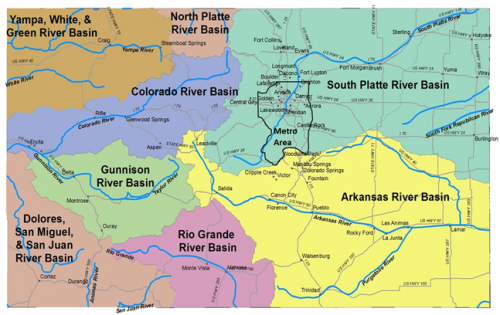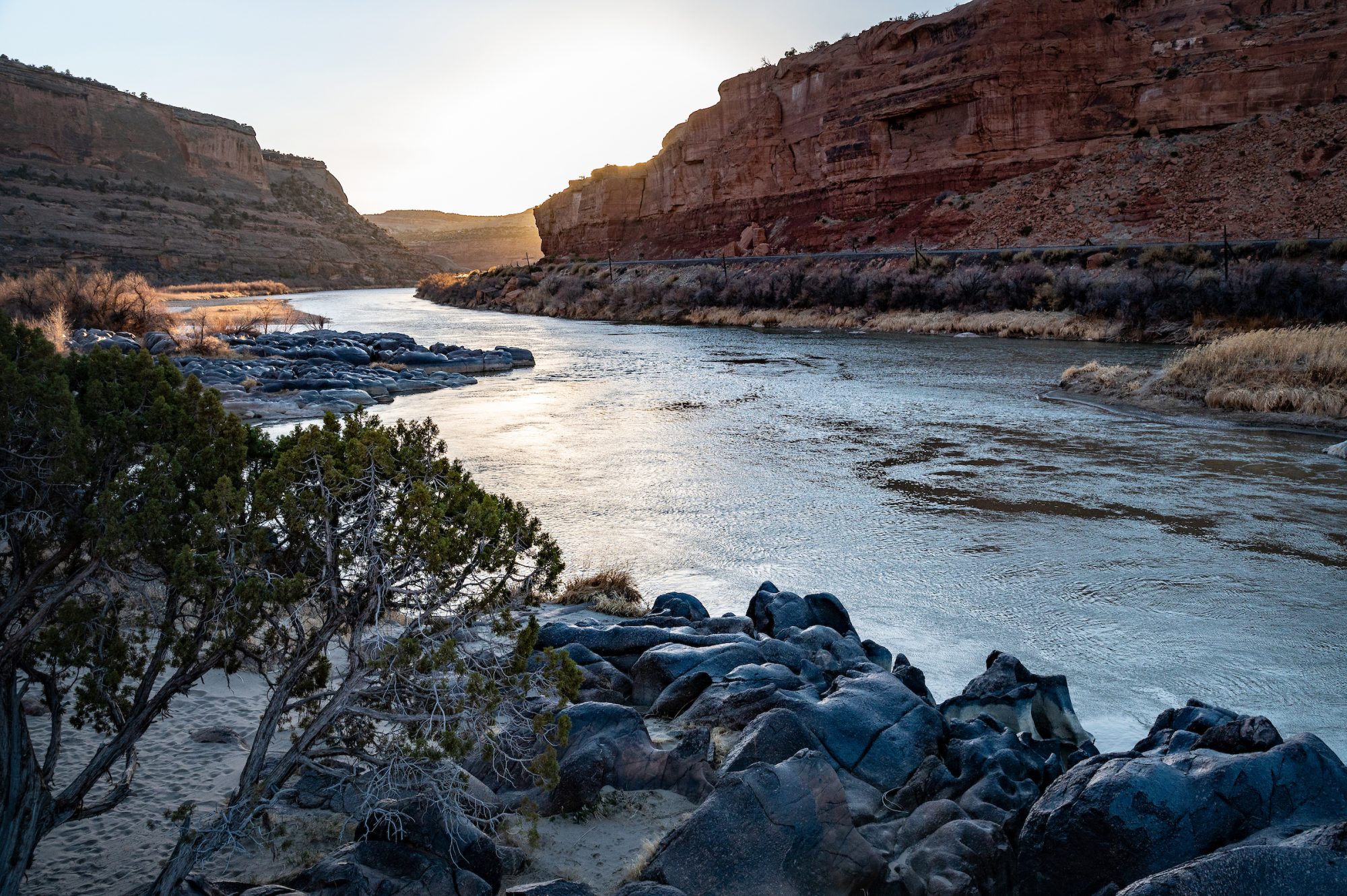During the development of the Colorado Water Plan six years ago, Water for Colorado came together to help ensure Coloradans’ voices were heard in the creation of the plan. In the end, 30,000 public comments were submitted to the Colorado Water Conservation Board, making it one of the largest and most celebrated examples of civic engagement in state history.
It’s time to once again ensure Coloradans’ voices are heard as the Colorado Water Plan undergoes an update. As you may have read about in last week’s blog post, the state’s nine Basin Implementation Plans (BIPs) that inform the Water Plan are in the process of being updated, and it’s time for us all to get involved to ensure the long term health of our water and rivers. The month-long public comment period on BIP drafts has opened and runs through November 13, allowing residents to provide input on what they want to see in their community’s plan.

Courtesy of Southwick Associates and the Colorado Department of Natural Resources
Basin Implementation Plans aren’t just important to the local basins and watersheds; they help build the scaffolding of the Colorado Water Plan overall. Crucially, the BIP public comment period is the first opportunity to engage community members, decision-makers, and all water stakeholders (that means you!) – especially those who may have been left out in years past – to ensure their voices are being heard.
Meaningfully commenting on your local plan can be as simple as asking your Basin Roundtable representatives to prioritize and protect local river flows and ensure opportunities for river enjoyment and recreation by all. To help you do this, Water for Colorado is collecting comments, which will then be submitted on your behalf to your local Basin Roundtable once the public comment period ends on Nov. 13.
If you want to get involved but are unsure of what to say or how to comment, we’ve used the expertise of our nine organizations to compile a few key recommendations that encompass what we believe is necessary for ensuring healthy and thriving rivers and watersheds as we face unprecedented climate change.
Water for Colorado’s Key Recommendations:
Healthy flowing rivers:
Manage rivers to benefit healthy flows for all communities, recreation, and fish and wildlife across the state by encouraging flexible, collaborative water-sharing and conservation programs to enhance environmental and recreational flows.
Resilient watersheds:
Actively manage our watersheds‘ forests, streams, and wetlands, the source of our clean drinking water, to improve their resilience to drought and fires by incorporating nature-based solutions that protect, sustainably manage and restore headwater streams, riparian corridors, and wetlands. This includes scaling up projects that utilize natural process based restoration methods (e.g. beaver mimicry structures and other natural approaches) that result in beneficial ecological and hydrological processes to ensure communities and habitats are more resilient to a changing climate.
Equity:
Water is one of the few things that truly connects us all, so we must support clean water and healthy river access for everyone by ensuring ongoing opportunities for public outreach and engagement to ensure diverse, inclusive, and equitable engagement on basin-level water planning efforts.
Support irrigated agriculture:
Support our local food, local families, and wildlife through water-smart agriculture practices such as upgrading agricultural infrastructure to provide multiple environmental and recreational benefits, promoting soil health, and developing markets for lower water use crops.
Water conservation and efficiency:
Support water-smart planning for our new growth (including limits to areas of non-essential turf grass) and increase water reuse and recycling. Reduce current legal and financial barriers to the adoption of water conservation and efficiency programs and practices.
Sustainable Funding:
Encourage basin funding prioritization of multi-benefit projects enhancing river and watershed health, which includes support for the development of regional funding programming (ex: 2020 7A ballot measures) and the efficient implementation of all state and federal funds.
Now that you have a deeper sense of the types of updates that would benefit not only the local plans, but eventually the statewide Water Plan update for the sake of our rivers and communities at large, visit our action alert and take just a few moments to make your voice heard!
